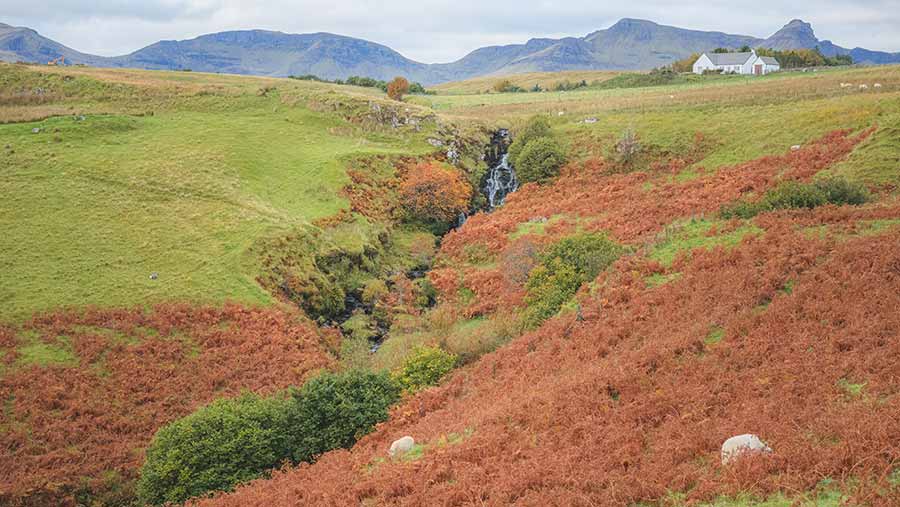Scotland and Wales denied use of bracken control herbicide
 © Stephen/Adobe Stock
© Stephen/Adobe Stock Farmers and land managers in Scotland and Wales have been dealt a serious blow after their governments refused to authorise Asulox for bracken control this season.
This means it will only be possible to use Asulox (asulam) in England this year, and control in Scotland and Wales will be restricted to physical methods, such as cutting, bruising, trampling and pulling.
The decision for Northern Ireland has not yet been announced.
See also: Asulox approved for bracken control in England for 2023
The SNP-Green Scottish government announced on Wednesday 21 June that Asulox will not be authorised for bracken control this season in Scotland, arguing the “risks outweigh the potential benefits”.
Finlay Carson, Scottish Conservative MSP for Galloway and West Dumfries said on Twitter that failure to license Asulox to control bracken in Scotland in the absence of a viable alternative was “yet another example of Greens controlling the Scottish government”.
The failure to license Asulox to control the spread of bracken in the absence of viable alternative is yet another example of Greens controlling the SG! This will lead to significant issue in rural areas, adversely affecting biodiversity, animal welfare and public health.
— Finlay Carson MSP (@fincarson) June 21, 2023
NFU Scotland (NFUS) president Martin Kennedy described the Scottish government’s decision as “absolutely shocking”, saying he would be asking ministers to have an urgent rethink.
“We’ve got a green agenda now which is pushing for biodiversity loss because of the actions of some of the decisions they’re making,” said Mr Kennedy.
“If you’ve got hillsides which are monocultured with bracken, it’s going to have big impacts in rural areas on biodiversity and the social and economic impact further down the track is incredible.
“This needs to be called into question and it’s compromising business in Scotland. It has a massive impact on the economy and a huge impact on our members.”
Farming and industry organisations in Scotland, including NFUS, Scottish Land and Estates, the Game and Wildlife Conservation Trust, and the Bracken Control Group, had issued a joint plea to the government to urgently approve Asulox.
Bracken is an invasive weed “which poses a significant threat to biodiversity, drinking water quality, agriculture, animal welfare and public health”, the group said in a joint statement.
Decade-long approval
For the past 10 years, Asulox has been approved each year as part of an emergency authorisation process on behalf of the UK administrations by the Health and Safety Executive (HSE).
This year, HSE advice to all four nations was not to authorise Asulox for bracken control “because of the risks it poses human, animal and environmental health”.
Scottish rural affairs secretary Mairi Gougeon said: “Independent advice from the chief scientific adviser [Prof Mathew Williams] and the Expert Committee on Pesticides supported this conclusion, and the Welsh government has confirmed that it, too, will follow the HSE advice.”
“The Scottish government is committed to science-based decision-making, and we have followed the same, well-established and evidence-based process we always follow for the authorisation of chemicals.”
